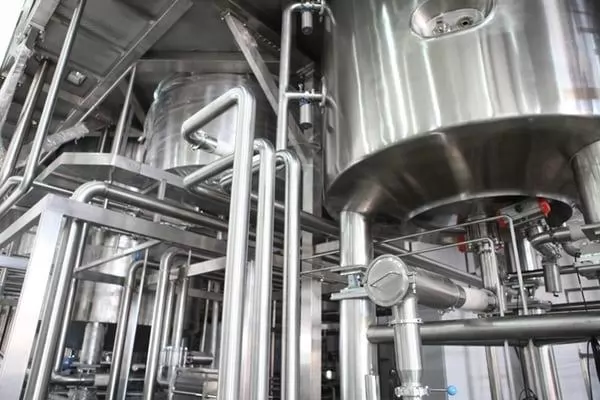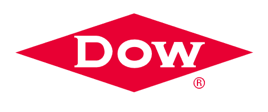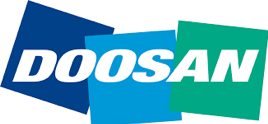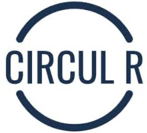Summary
Desalination technology, widely recognized for addressing water scarcity, is predominantly used in the Middle East and Africa, housing 60% of the market. Key technological advancements, such as reverse osmosis, which is more economical with energy consumption approximately 2 to 4 kWh per cubic meter, dominate the sector.
France, with its extensive coastline of 4,668 km (metropolitan France and Corsica) and holding the second-largest exclusive economic zone globally, has invested in desalination, utilizing the expertise of French companies like Veolia and Suez. These companies manage plants that provide fresh water to millions worldwide and lead in the desalination market alongside the Dow Chemical Company. Despite the environmental impact of brine discharge and the associated high energy consumption, desalination is posited as a key solution to global water stress, aligning with the United Nations' Sustainable Development Goals, particularly Goal 6 for clean water and sanitation. French startups also contribute innovative solutions in this field, such as renewable energy-driven desalination processes, signifying a promising future for the industry amidst environmental and economic challenges.
Navigating the Waves of French Seawater Desalination: Market Trends and Expertise
France’s approach to seawater desalination reflects its sustained efforts to secure water supplies for human consumption while confronting environmental and economic challenges. Being acutely aware of the complex regulatory framework overseen by ANSES, which demands exhaustive assessments ranging from qualitative and quantitative freshwater resources status to the impact of desalination plants, France maintains stringent control over the abstraction and processing of seawater. The regulatory vigilance supports the desalination industry that interacts with a coastline spanning roughly 4,500 to 19,000 kilometers across the mainland and overseas territories. France, situated as the ninth longest coastline holder worldwide, benefits significantly from its second-largest global exclusive economic zone, approximately 10 to 11 million square kilometers. This wide-reaching maritime realm paves the way for desalination activities, notably in French Polynesia, where reverse osmosis plants powered by renewable energy emerge, while around one-third to two-fifths of the local population still lack access to potable water.
The desalination market, with global estimations around $14 to $16 billion and growth forecasts hovering near a 7 to 9% compound annual rate, leans heavily on the Middle East and Africa, with about 60% market dominance.
Domestically, desalination features as a fallback during peak demands. While residents have sufficient freshwater reserves, areas like the Vendée consider desalination due to regional scarcity, despite higher costs. Globally, French expertise leads with innovative desalination technologies, especially reverse osmosis, chosen for its energy efficiency compared to distillation and electrodialysis. A freshwater cubic meter costs within the range of roughly €3.50 to €4.70, depending on the region, a spectrum reflecting significant variances across France. Desalination plants, largely contingent on the reverse osmosis process, incur average costs around €1 to €9 per cubic meter, highlighting the financial implications of this water sourcing alternative.
Moreover, transformational start-ups like Circulair, Sweetch Energy, and Mascara, contribute to France’s innovative landscape, pushing boundaries in desalination technology. As startups gain traction, amassing millions in funding, they champion creative solutions to harness renewable energy for.
Global Titans in the Field of Seawater Desalination
When it comes to mastering the complex process of transforming seawater into potable water, two French corporations prominently stand out as world leaders, renowned for their technological prowess and extensive global footprint. Veolia Water Technologies and Suez are the pioneering forces driving innovation and sustainability in the desalination market, setting standards for others to follow.
Veolia Water Technologies - Embracing the status of a global leader, Veolia boasts an impressive portfolio with a cumulative treatment capacity of around 13 million cubic meters of water per day across more than 2,300 sites worldwide, operating in 108 countries. Given the pressing demand for fresh water, particularly in Gulf countries and Central Asia, Veolia has cemented its presence with desalination projects that are not just large in scale but also critical to regional water security. In Australia, the company's plants supply a substantial portion of Sydney's water needs, showcasing its potential to cater to large urban populations.
Suez- With a globally influential presence, Suez has successfully marketed and commissioned 255 desalination units in locations spread across the globe, providing over 4.2 million cubic meters of fresh water daily to nearly 10 million people. The company emerges as a dominant player, particularly in the water-restricted landscapes of Saudi Arabia and the Sultanate of Oman, where its cutting-edge desalination facilities like Barka 4 make a significant difference to the water supply of the regions.
These companies not only represent French industrial excellence but also exemplify the commitment towards addressing the critical issue of water scarcity that affects many parts of the world. Through their innovative desalination technologies and projects, they are at the forefront of empowering regions with sustainable, reliable sources of fresh water, thus playing a key role in promoting global water security.
to understand this market
Detailed content
 Inforamtion
Inforamtion
- Number of pages : 30 pages
- Format : Digital and PDF versions
- Last update : 24/12/2020
 Summary and extracts
Summary and extracts
1 Market overview
1.1 Definition and scope of study
Globally, the facts are alarming: more than 2 billion people live in countries with high water stress, and nearly 700 million people worldwide could be displaced by water scarcity by 2030. In the face of this global water stress, seawater desalination plants are an excellent alternative, already widely exploited in some countries, particularly those in the Gulf.
On a national scale, groundwater and surface water reserves are still sufficient to water the French population over the year, although some regions may fall below the water stress threshold declared by the UN. Thus, some desalination units have been set up, and others are planned, particularly in the Vendée region. Nevertheless, the costs associated with these plants make the water produced much more expensive, and these plants are therefore only used during peak periods.
On the other hand, French expertise on these seawater desalination issues is widely recognized worldwide, thanks in particular to two French market leaders. Other young French companies offer innovative technologies and have already demonstrated their know-how abroad.
Prospects in this market are therefore very optimistic, with the sole exception of environmental considerations, since freshwater production by desalination is very energy-intensive on the one hand, and discharges large quantities of brine and other chemical waste that can disturb the local marine ecosystem on the other.
 List of charts
List of charts
- Evolution du marché de dessalement
- Prix moyen global par pays de l'eau douce, par pays
- Répartition des coûts pour une usine de dessalement par osmose inverse
- Prélèvements d'eaux naturelles annuels
- Part de la population alimentée en eau respectant les normes de qualité biologique
All our studies are available online in PDF format
Take a look at an example of our research on another market!
Latest news
Companies quoted in this study
This study contains a complete overview of the companies in the market, with the latest figures and news for each company. :
 Choosing this study means :
Choosing this study means :
Access to more than 35 hours of work
Our studies are the result of over 35 hours of research and analysis. Using our studies allows you to devote more time and added value to your projects.
Benefit from 6 years' experience and over 1,500 industry reports already produced
Our expertise enables us to produce comprehensive studies in all sectors, including niche and emerging markets.
Our know-how and methodology enable us to produce reports that offer unique value for money.
Access to several thousand articles and paid-for data
Businesscoot has access to all the paid economic press as well as exclusive databases to carry out its market research (over 30,000 articles and private sources).
To enhance our research, our analysts also use web indicators (semrush, trends, etc.) to identify market trends and company strategies. (Consult our paying sources)
Guaranteed support after your purchase
A team dedicated to after-sales service, to guarantee you a high level of satisfaction. +44 238 097 0676
A digital format designed for our users
Not only do you have access to a PDF, but also to a digital version designed for our customers. This version gives you access to sources, data in Excel format and graphics. The content of the study can therefore be easily retrieved and adapted for your specific needs.
 Our offers :
Our offers :
the seawater desalination market | France
- What are the figures on the size and growth of the market?
- What is driving the growth of the market and its evolution?
- What is the positioning of companies in the value chain?
- Data from several dozen databases
Pack 5 études (-15%) France
- 5 études au prix de 75,6€HT par étude à choisir parmi nos 800 titres sur le catalogue France pendant 12 mois
- Conservez -15% sur les études supplémentaires achetées
- Choisissez le remboursement des crédits non consommés au terme des 12 mois (durée du pack)
Consultez les conditions du pack et de remboursement des crédits non consommés.





 Veolia's plan for growth in energy - 13/01/2024
Veolia's plan for growth in energy - 13/01/2024
 Citeo and Suez start up France's second plastic packaging sorting facility - 28/10/2023
Citeo and Suez start up France's second plastic packaging sorting facility - 28/10/2023


















